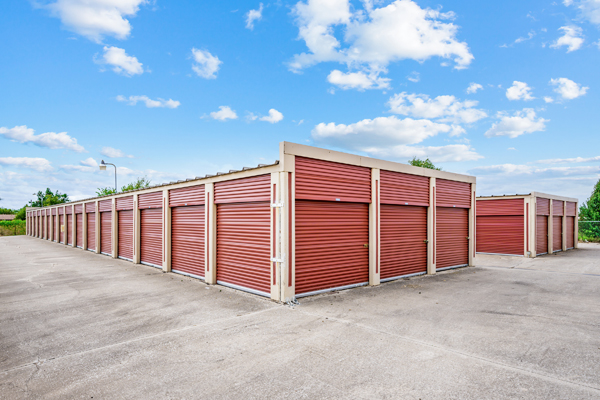Self Storage for Dummies

Perhaps you are newly acquainted with self-storage and need some overall guidance. Or, perhaps you have been using our facilities for some time and would appreciate some helpful reminders. Whatever the case, below we have compiled a list of storage suggestions that we believe will yield positive results, no matter where you are on the self-storage continuum.
The Dont’s of Self-Storage:
Don’t store perishables like food and other items that attract pests.
It should be common knowledge, but meat, vegetables, and fresh produce clearly attract insects, rodents, and mold to infest a unit. Even dry foods, such as grains and pet food, create an environment for critters to thrive.
Don’t store hazardous materials like butane, propane, acids, harmful chemicals, or fuel.
It's always dangerous to keep gasoline and fuel in places without ventilation. The heat in a space can create super high pressure and make a lot of vapor that's just waiting for the right moment to find its ignition source. It takes less than half a pint of gasoline vapor to fill a space the size of an entire garage. When you consider that with the kind of pressure and heat we're talking about, it's easy to see why gasoline fumes might not only fill a space but might be the most explosive thing you can imagine.
Don’t store living plants or animals.
An environment that has no oxygen and light cannot support plant life. It is really obvious, but I will say it anyway: Do not attempt to keep any kind of animal or pet in a self-storage unit.
Don’t store legal documents.
Very rarely do we have a break-in, but there is the possibility that information could get stolen. And of course, information can be damaged or destroyed by natural disasters—fires, floods, that sort of thing. As I mentioned before, if for some reason your unit goes to auction, the information could end up in the wrong hands.
Don’t store medication.
Keeping drugs in extreme heat and humidity can change how a drug works and can cause a drug to go bad—lose potency. If the drug is a lifesaving medicine, this can make a big, potentially dangerous, difference.
Don’t store guns.
If you don't plan on using a company like Gunsitters to store your guns safely, it's illegal to keep them in a standard self-storage unit. The main reason is that, if a tenant doesn't pay their rent for over 60 days, the contents of the unit can legally be sold at auction. In the rare event that someone's been storing guns in a unit, those guns could end up in the hands of someone who shouldn't have them.
Having discussed some guidelines about what not to store in your unit, we thought it would be helpful to offer a few pointers on self-storage and, more specifically, on SpareBox Storage. Why do we think Pointers on SpareBox Storage are Relevant? We are awesome, we are cheap, and we are VERY secure.
The Do’s of Self-Storage:
**Purchase insurance. ** When you rent with us, you must either buy a tenant insurance plan or show proof of your own insurance. We require this; almost all self-storage companies do. It's a necessity that's been prompted by too many heart-wrenching instances of tenants losing everything.
What do we need covered? The same rare events that we hope never befall anyone. Fires, earthquakes, floods, or a pestilential infestation of (actual) insurance-covered bees. And the same common crime that just about every urban dweller has to worry about: burglary.
Use disc locks for more security.
Of all the locks you can buy, disc locks are the hardest to cut. That places them at the top of the self-storage locking hierarchy. In the unlikely event that someone tries to break into your unit, it's much less likely that they will succeed if your unit is protected by a disc lock.
Relieve latch pressure to allow for easier access to your unit.
If, by any chance, your unit is difficult to open due to latch pressure, you can access it more easily by relieving that pressure first. To do this, step down on the bottom handle of your door. This should be done, of course, before attempting to access the door itself.
We also want to share some tips on how to maintain your unit better and organize it more efficiently. The single most important piece of advice we can give is to label all your stuff. If you don't know what you've packed, it makes accessing stored items much more difficult. But even if you do know, and especially if someone else might need to access your unit, labels are a must. You also want to make sure your furniture is stacked in a way that it won't topple over. And remember: dust is not your friend.
When all is said and done, and your self-storage journey reaches its conclusion, we ask our tenants to let us know when they plan to vacate. We also ask that you take your lock with you when you leave. This ensures a smooth move-out.